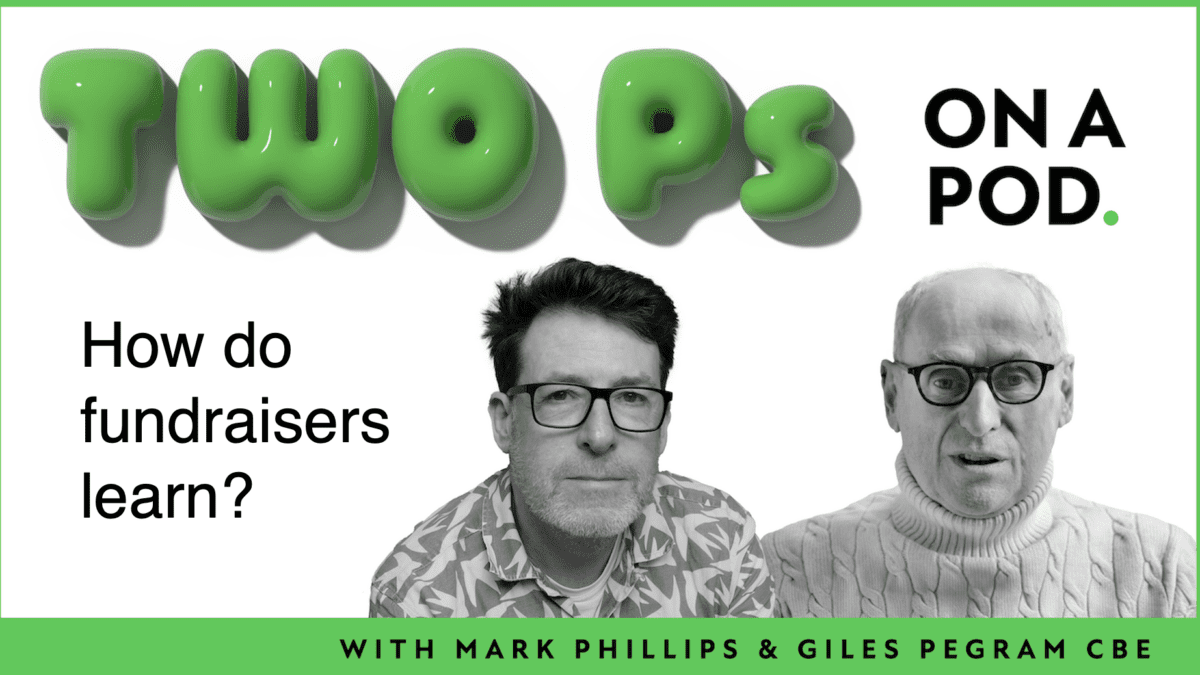How do you learn what's the best thing to do in fundraising?
In our latest video/podcast, I'm back with Giles to look at how we - as a fundraisers – learn what we should be doing to engage donors and raise more money.
One of the problems that we face in the sector is the huge amount of information that's available advising us on what we should be doing when developing our fundraising plans. Much of it is contradictory and a fair amount of it is downright dangerous!
This creates a huge dilemma when trying to work out what's good advice and what's bad. So In the podcast, we consider how we should tackle the thorny subject of learning, covering the following points:
The Balance Between Excitement and Effectiveness
Why do we strive to make fundraising exciting? We consider the balance of sticking to proven and effective methods compared to copying that new idea that's getting loads of likes on social media.
The Role of Conferences and Content Curation
Fundraising conferences often grapple with choosing between showcasing best practice and presenting exciting new ideas (that sell most tickets). We explore this dilemma and emphasise the importance of learning from experience, insight, and wisdom rather than just chasing innovation for its own sake.
Learning from History
We look at how historical knowledge can inform modern fundraising strategies and consider the fact that by studying past successes and failures, fundraisers can avoid repeating mistakes and build on what has been proven to work.
The Challenge of Sharing Best Practices
We ask who should be responsible for defining and sharing best practice? We don't think it should be the responsibility of individual fundraisers, but discuss the need for a more structured approach to disseminating knowledge led by sector bodies or perhaps even through collaborative efforts among larger charities.
Practical Takeaways
Finally, as ever, we also include some practical advice and suggest that sometimes the best way to innovate is to stop trying to do everything differently. Instead, focus on what has been shown to work and adapt it to current circumstances. Or as we say...
Perhaps what we should start doing differently, is stop doing things differently.
There's plenty more shared in the podcast, with links to watch and listen below...
Tags In
The Essentials

Crack the Code to Regular Giving: Insights, Strategies, and a Special Giveaway!

‘Tis Halloween. Keep to the light and beware the Four Fundraisers of the Apocalypse!

Why do people give? The Donor Participation Project with Louis Diez.

A guide to fundraising on the back of a postcard

What does the latest research tell us about the state of fundraising?









